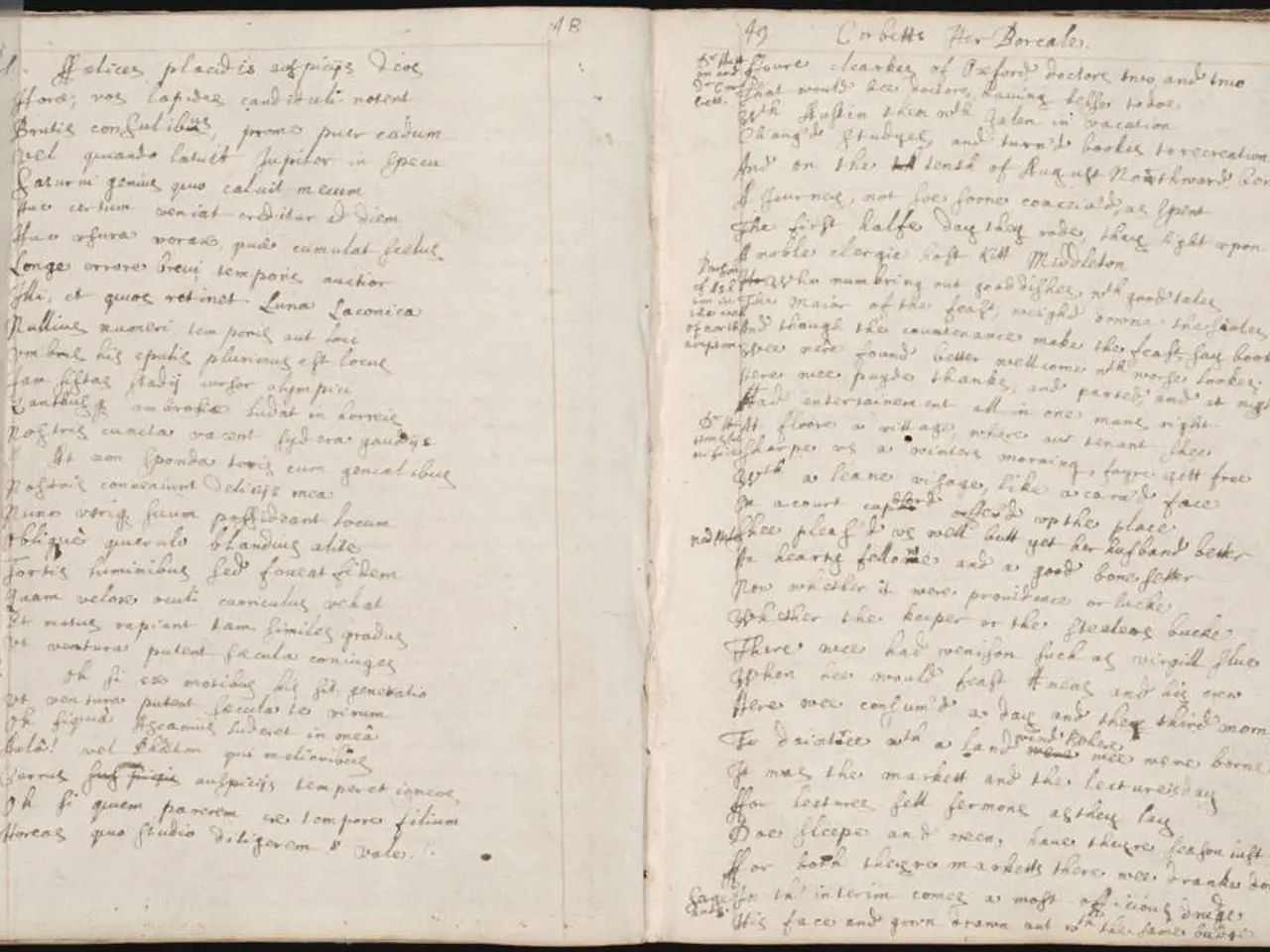Brainstorm Your Thoughts
In the world of storytelling, an idea is the seed from which a tale blooms. This fundamental truth is beautifully encapsulated in the Idea Box method, a signature tool from a renowned platform or founder.
Creating an Idea Shelf is essential for easy access to ideas, each one a potential story waiting to be told. An idea that has grown into multiple boxes may lead to a long-term project like a book, play, or film. Regularly inspecting the Idea Box is important to monitor the growth of ideas, ensuring they are nurtured and developed.
Ideas should deal with specific aspects of a subject, making them more focused and impactful. A good idea should be deeply personal, arousing specific emotions, be something the writer feels passionate about, express a specific view of life, embrace universal qualities, and have the potential to be of interest to 600-800 million people worldwide. Being original is crucial in storytelling to avoid clichéd plot twists and uninteresting ideas.
The structure of a story comes second in importance after the idea. The process of writing a story is a journey from chaos to order, a process that requires commitment, knowledge, discipline, and sometimes extensive research. Seeking daily inspiration is essential, as all stories start on a blank page.
Writing a story should be inspired, passionate, and not seen as a job or something one is forced to do. The final screenplay, play, or novel is least important compared to the idea. However, it's crucial to identify the target audience and study the market to ensure the story resonates with the intended readers.
Box Files should be used to store ideas, notes, and relevant materials. Each box should be named according to its content (e.g., Dialogue, Concepts, Characters). The speed of this process depends on various factors such as the writer's commitment, knowledge, discipline, difficulty of the idea, and amount of research needed.
Beginning writers often generate derivative ideas instead of original ones. This observation is highlighted by Karl Iglesias in his book "The 101 Habits of Highly Successful Screenwriters." To overcome this, writers must strive for originality, delving deep into their personal experiences and emotions to create unique, captivating stories.
The author of the book "Making a Good Script Great," Linda Seger, emphasises the importance of the idea in storytelling. She suggests that an idea worthy of publication should have broad appeal for a large number of people. However, ideas left unattended in the Idea Box may turn out to be brief flirtations rather than long-term projects.
In conclusion, the Idea Box is a powerful tool for writers, helping them conquer the fear of not writing their story and improve their strengths and weaknesses as writers. By following this method, writers can create compelling, original stories that captivate audiences worldwide.
Read also:
- Setting Up and Expanding Operations at a Soil Blending Facility
- Surveying the Scene: Legality, Drones, and American Anti-Terror Strategy
- Regional University's healthcare system strengthened through collaborative partnership with Chancellor Dr Fiona Hill
- Highlighting Achievements of Our Institution's Faculty in the Academic Year 2023-24





